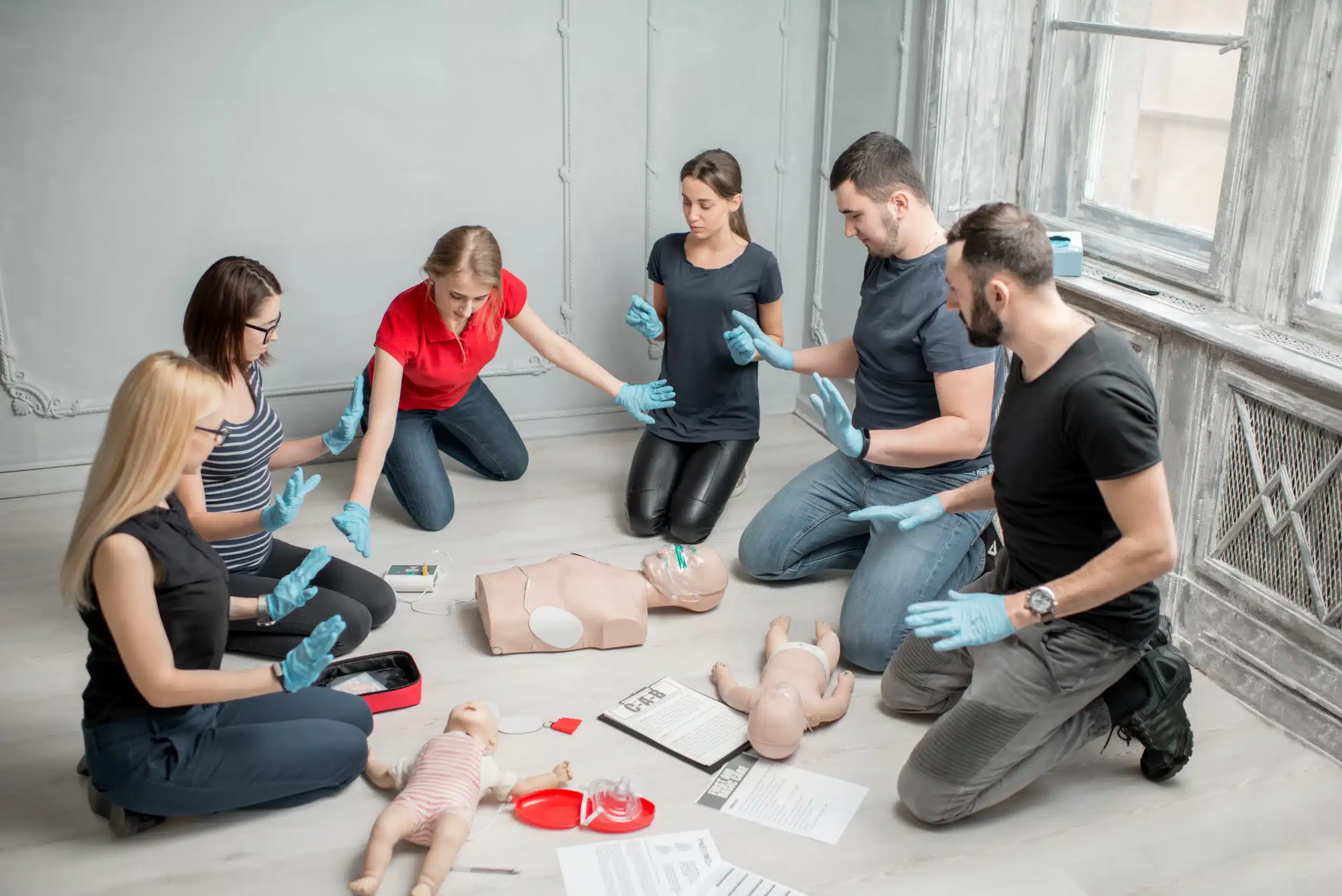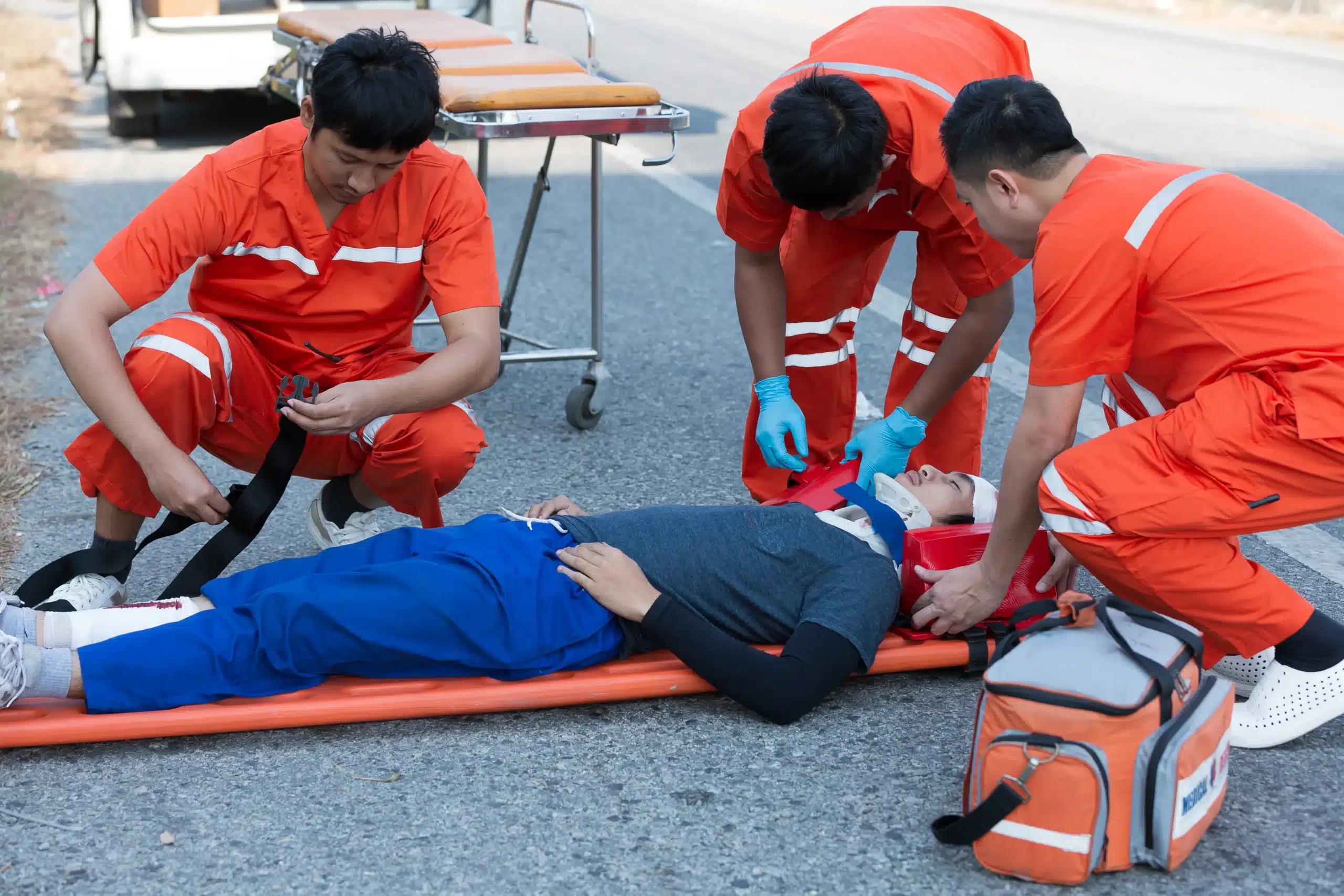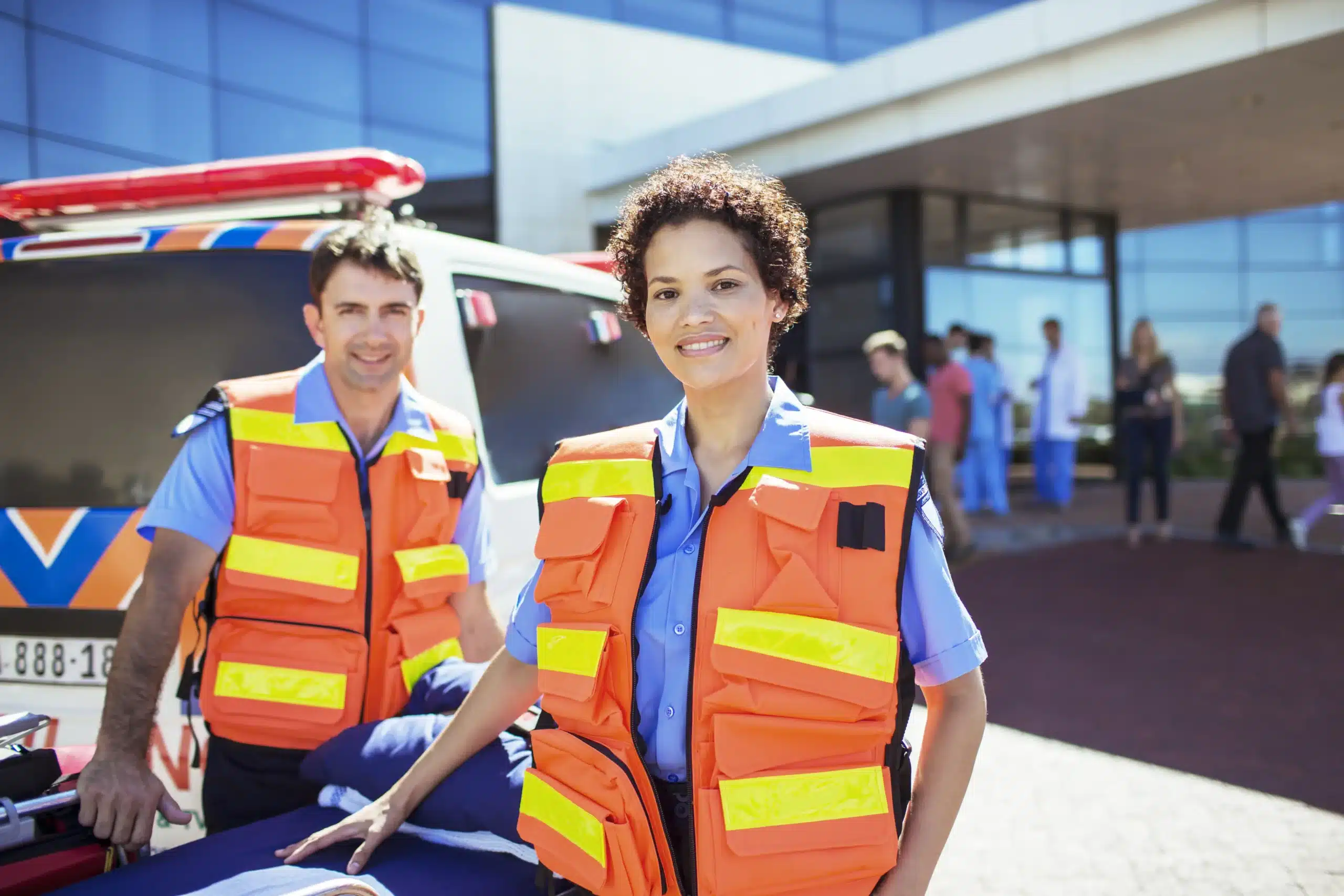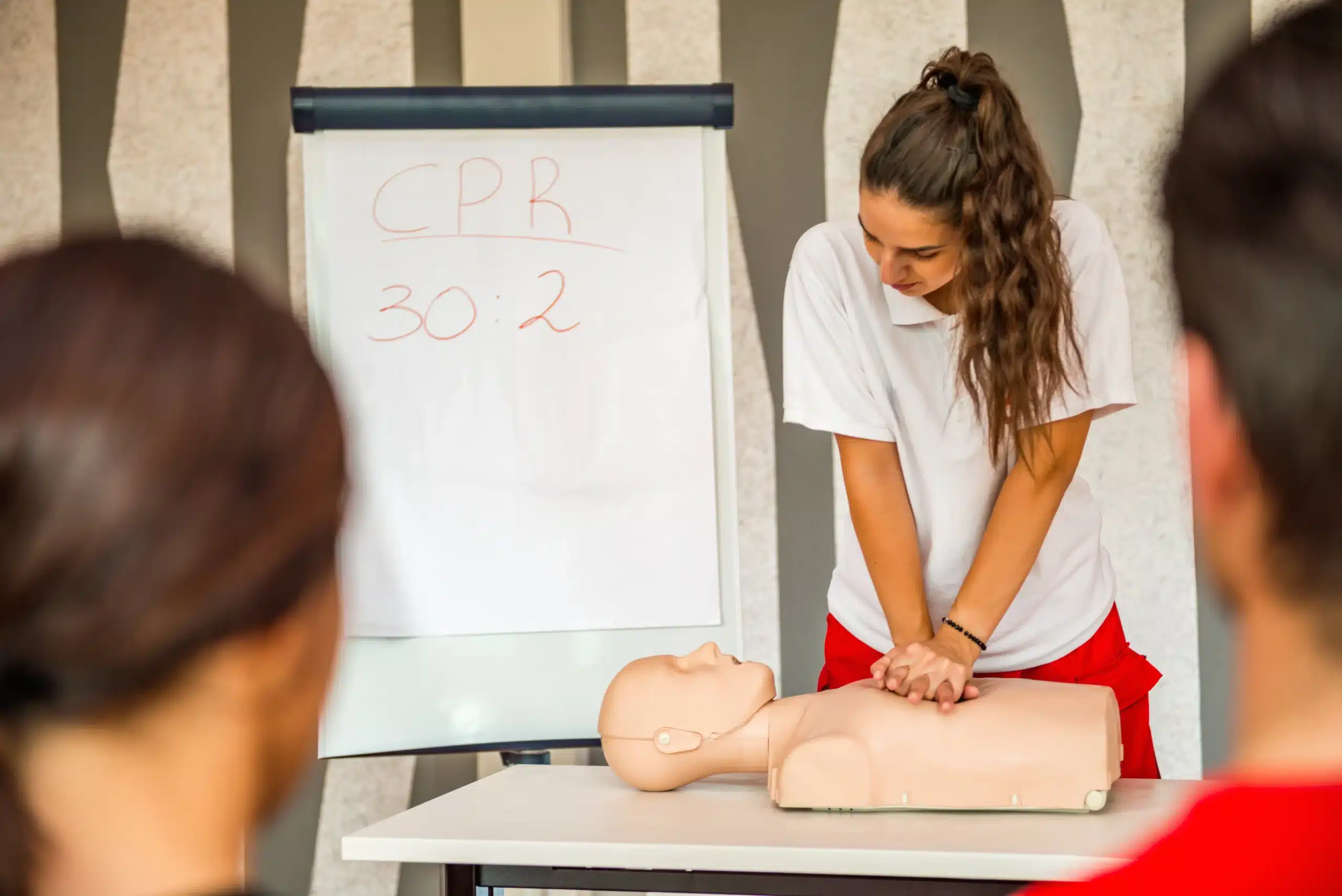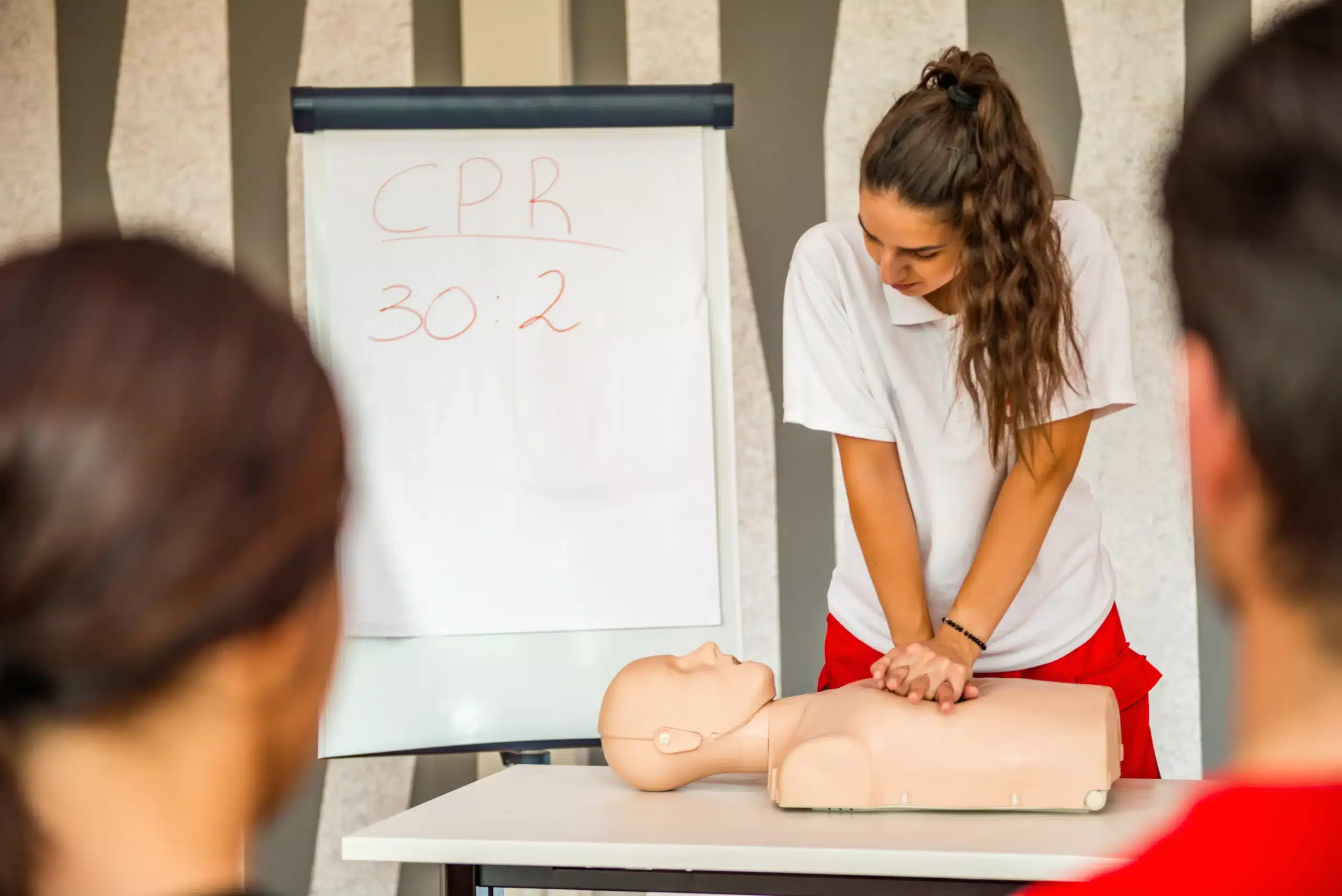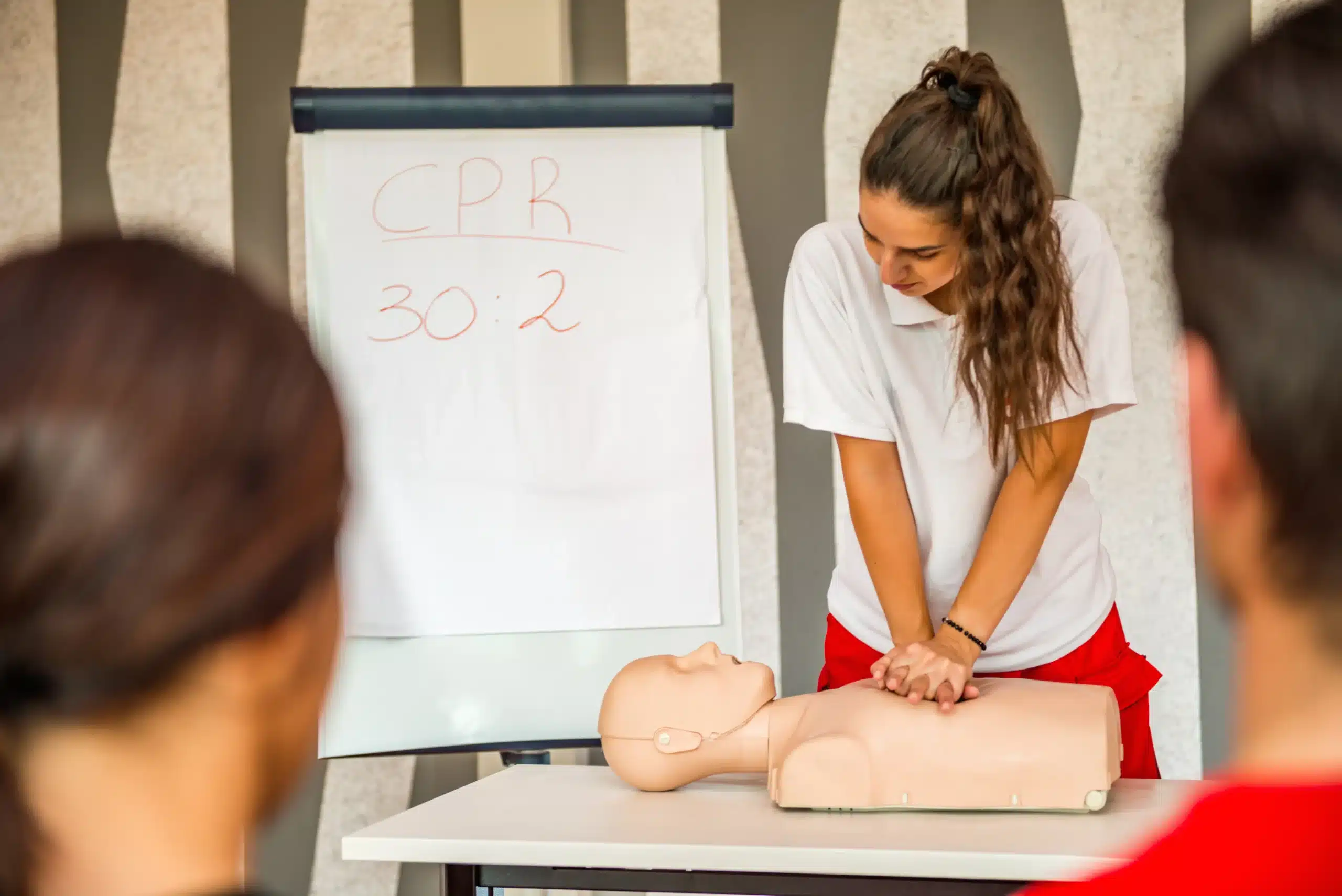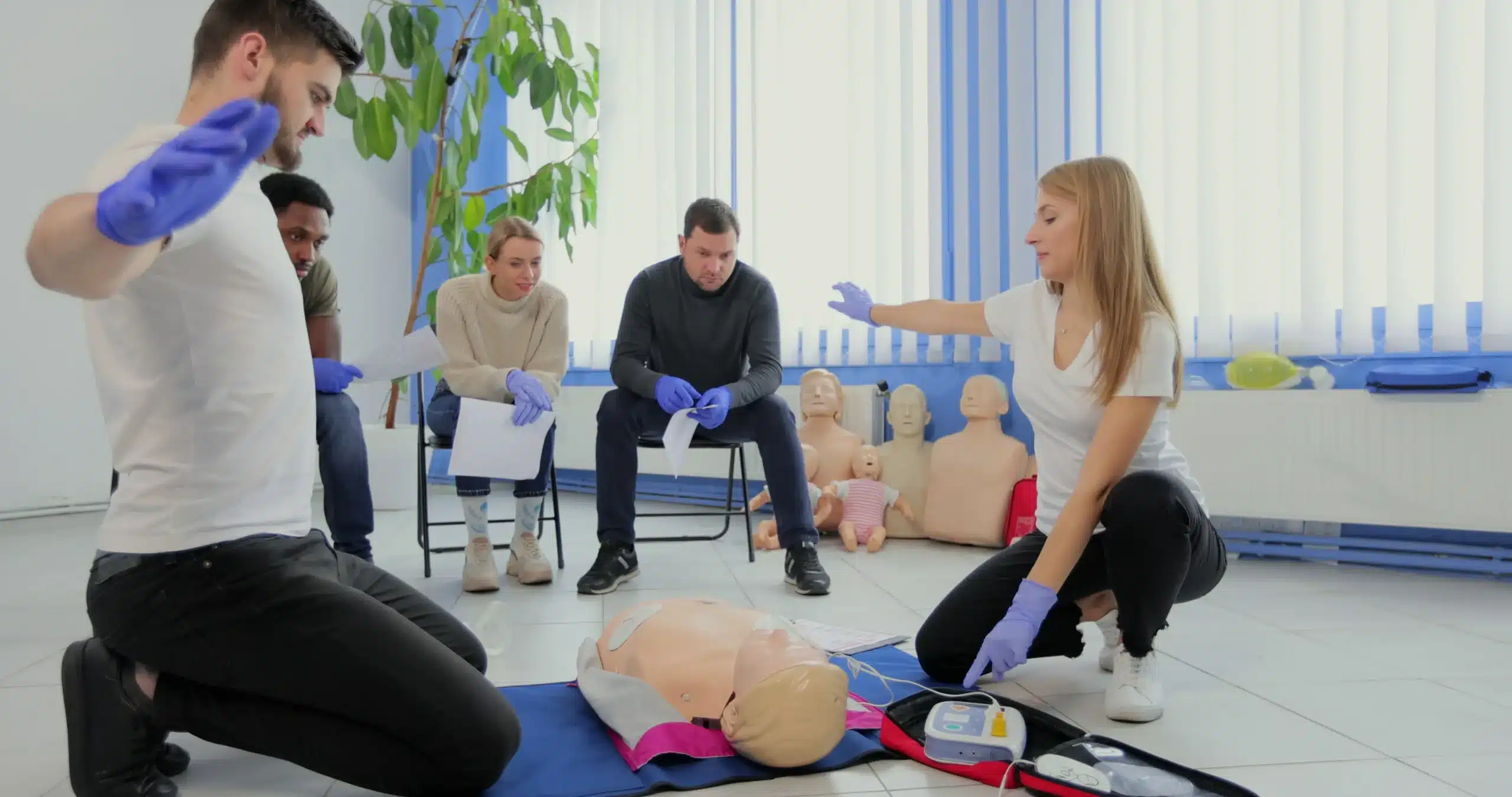In the face of a medical emergency, seconds can matter. CPR certification in Concord equips you with the skills and confidence to act quickly and potentially save a life. This guide provides a clear roadmap to CPR certification, covering everything from basic CPR to advanced life support training like BLS, ACLS, and PALS. We’ll explore the value of hands-on learning, discuss the certification process, and help you find the right training program in Concord to meet your specific needs. Whether you’re a healthcare professional, a parent, or simply a concerned citizen, this guide will empower you to make a difference.
Key Takeaways
- CPR certification equips you with life-saving skills. From basic CPR and First Aid to advanced certifications like BLS, ACLS, and PALS, find a course that aligns with your personal or professional goals. These skills empower you to respond effectively in various emergencies.
- Select a CPR training provider carefully. Look for AHA-certified courses, hands-on practice, and convenient scheduling options. Consider factors like class size, instructor experience, and the overall learning environment.
- Stay current with your CPR skills and knowledge. Renew your certification every two years and explore continuing education opportunities. Regularly review resources and consider refresher courses to maintain your confidence and proficiency in life-saving techniques.
What is CPR Certification?
CPR certification confirms your ability to perform CPR and use an AED correctly in emergencies. It’s essential for anyone who might encounter a cardiac emergency, equipping you with life-saving skills. CPR courses typically cover techniques for adults, children, and infants, plus proper AED use. These courses build your knowledge and confidence for quick, effective action in stressful situations. The American Heart Association (AHA) offers structured CPR certification courses to prepare you. Certification is usually valid for two years, after which you’ll need to renew it to stay current with the latest guidelines. Getting certified not only sharpens your skills but also contributes to a safer community. For local BLS training, check out Concord CPR Classes in Concord, CA.
CPR Certification Courses
Choosing the right CPR certification course depends on your individual needs and career goals. Here’s a breakdown of common CPR certifications:
Basic Life Support (BLS)
The American Heart Association (AHA) BLS CPR course equips participants with the fundamental skills to respond to cardiac arrest and other life-threatening emergencies. This course covers adult, child, and infant CPR, along with AED use and relieving choking. BLS certification is crucial for healthcare providers and anyone seeking a comprehensive understanding of basic life support. It emphasizes high-quality CPR and builds confidence to provide lifesaving care.
Advanced Cardiovascular Life Support (ACLS)
ACLS training is designed for healthcare professionals who lead or participate in resuscitation efforts. Building upon BLS skills, this advanced training covers airway management, intravenous access, and pharmacology in emergencies. ACLS certification is essential for physicians, nurses, paramedics, and other healthcare providers managing cardiac arrest and other cardiovascular emergencies. The course emphasizes teamwork, effective communication, and integrating BLS skills into advanced life support interventions.
Pediatric Advanced Life Support (PALS)
PALS certification focuses on the specialized skills needed to respond to life-threatening emergencies in infants and children. This course covers pediatric assessment, resuscitation, and stabilization techniques. PALS certification is vital for pediatricians, nurses, paramedics, and other healthcare providers who care for young patients. The training highlights the physiological differences between children and adults, ensuring appropriate interventions.
First Aid & CPR
Combining first aid and CPR training creates a well-rounded skill set for handling various emergencies. These courses cover essential first aid for injuries like burns, cuts, and fractures, in addition to CPR skills for different age groups. This combined certification is valuable for anyone wanting to be prepared for medical emergencies and common injuries. It empowers individuals to offer immediate care in a range of situations, promoting safety and well-being.
Where to Get Certified
Finding the right CPR certification course depends on your individual needs and location. Here are a few reputable organizations and training centers to consider if you’re in the Concord, CA area:
American Heart Association (AHA)
The American Heart Association (AHA) offers a variety of CPR certification courses designed to equip people with the skills to handle cardiac emergencies. These programs are widely recognized and respected, particularly in healthcare.
Red Cross
The Red Cross also provides comprehensive CPR training, including digital options for schools and organizations. Their courses cater to a wide range of people, making these essential skills accessible to everyone.
Concord CPR Classes
Concord CPR Classes is a woman-owned AHA Training Center offering high-quality training in BLS, ACLS, PALS, CPR, and First Aid. They prioritize giving students the knowledge and confidence to respond effectively in emergencies. Visit the Concord CPR Classes website to learn more.
Safety Training Seminars
Founded in 1989, Safety Training Seminars offers various AHA certification courses, including BLS, ACLS, PALS, CPR, and First Aid. They offer training throughout Concord and other Contra Costa County cities, making their courses easily accessible to residents. Visit Concord CPR Classes for more information.
CPR Training Center
The CPR Training Center specializes in American Heart Association (AHA) certified courses, including CPR, BLS, ACLS, and PALS. Serving the Bay Area, with a particular focus on Contra Costa County, they offer a convenient option for local residents. Explore their course catalog online.
CPR for Life
Located in Concord, CA, CPR for Life provides CPR and First Aid training for individuals and organizations across the San Francisco Bay Area. Their courses aim to be accessible and informative. Visit the CPR for Life website for details.
Certification Costs & Value
CPR certification is an investment in life-saving skills, and understanding associated costs is an important first step. While pricing varies based on the provider, course type, and your location, understanding different pricing models and available discounts can help you find a course that fits your budget.
Course Prices
Course prices depend on several factors, including the level of certification (CPR, BLS, ACLS, PALS, etc.) and the training provider. Basic CPR and First Aid courses often start around $75, while more advanced courses like ACLS and PALS can range from $150 to $250. Concord CPR Classes offers a low price guarantee, so you can be confident you’re getting a competitive rate. Check our website for the most up-to-date pricing on our CPR, First Aid, BLS, ACLS, and PALS courses. Remember, investing in quality training is an investment in potentially saving a life.
Discounts & Packages
Many training centers offer discounts and packages. For example, discounts are often available for groups, students, and returning customers. Some providers bundle courses together, such as CPR and First Aid, at a reduced price. Concord CPR Classes provides discounted group rates for businesses, organizations, and community groups. Be sure to inquire about any available discounts when you register.
Group Rates
Training a group can be a smart and economical choice. Group rates often provide significant savings. This is a great option for businesses, schools, community organizations, or even a group of friends or family members. Contact Concord CPR Classes to discuss your group training needs and receive a customized quote.
Certification Benefits
The value of CPR certification extends beyond the course price. Earning your certification provides the confidence and skills to respond effectively in a medical emergency. Studies show that hands-on training with feedback leads to better skill retention, empowering you to act quickly when every second counts. Your certification card, valid for two years, demonstrates your commitment to safety. At Concord CPR Classes, we provide American Heart Association certified courses, ensuring you receive a nationally recognized credential. This certification can be a valuable asset, enhancing your resume and demonstrating your commitment to public safety.
Class Schedules & Options
Finding a CPR class that fits your schedule shouldn’t be a hurdle. We offer various options to make getting certified convenient and accessible, whether you prefer hands-on, in-person learning or the flexibility of online modules.
In-Person Training
Our in-person classes provide a structured learning environment with experienced instructors at our Concord location. These courses offer direct interaction with instructors and hands-on practice with equipment. This format is ideal for those who thrive in a traditional classroom setting and value face-to-face instruction. We proudly serve the surrounding Contra Costa County communities, including Walnut Creek, San Ramon, Brentwood, and Pleasant Hill. Learn more about our in-person CPR training.
Online & Blended Learning
For a more flexible approach, our blended learning courses combine online modules with in-person skills sessions. This format lets you learn the theoretical aspects of CPR at your own pace, then demonstrate your skills during a scheduled hands-on session. We also offer online skill checks for BLS certification. This hybrid approach offers convenience and personalized learning combined with practical application.
Flexible Scheduling
We understand busy schedules can make finding time for training challenging. That’s why we offer classes seven days a week, from 8 am to 10 pm, at our Concord location. With various daily time slots, you can choose a class that seamlessly integrates into your life.
RQI Certification
Medical professionals seeking a streamlined path to certification can explore our American Heart Association RQI (Resuscitation Quality Improvement) program. RQI is an efficient way for healthcare providers in Concord to obtain their BLS, ACLS, and PALS certifications. This program offers a modern approach to skills validation and ongoing competency, ensuring healthcare professionals maintain the highest resuscitation care standards.
What Happens in Training?
Getting CPR certified isn’t about memorizing facts—it’s about building skills you can confidently use in an emergency. Here’s what you can expect from a typical CPR class:
Course Content & Length
CPR training covers essential life-saving techniques, including CPR for adults, children, and infants, how to use an AED (automated external defibrillator), and relief of choking. Many courses also include basic first aid instruction. Depending on the specific course—BLS, ACLS, or PALS, for example—the length can vary. Expect a class to last anywhere from a few hours to a full day. Our Concord CPR classes offer a range of options to fit your schedule.
Hands-on Practice
The most important part of CPR training is the hands-on practice. You’ll work with realistic manikins, giving you the chance to get comfortable performing chest compressions, rescue breaths, and other essential skills. Instructors provide real-time feedback, helping you refine your technique and build confidence. This hands-on training is crucial for mastering the skills needed to respond effectively during a real emergency.
Certification Process
Once you’ve completed the course and demonstrated proficiency in the required skills, you’ll receive your official American Heart Association certification card. This certification is typically valid for two years. You’ll then need to take a refresher course.
Comfortable Learning
We understand that learning life-saving skills can feel intimidating. That’s why we work to create a comfortable and supportive learning environment. Our instructors are experienced and approachable, ready to answer questions and guide you through the process. We keep our class sizes small to ensure personalized attention and ample opportunities for one-on-one instruction. We welcome students of all backgrounds, from healthcare professionals to community members wanting to learn these vital skills. For an even more affordable and fun learning experience, check out our discount group rates.
Maintain Your Certification
Keeping your CPR skills sharp is essential for responding effectively in emergencies. This section covers how to maintain your certification and stay up-to-date with the latest life-saving techniques.
Renewal Requirements
CPR certifications, like those from the American Heart Association, are typically valid for two years. To continue using your certification, you’ll need to renew it before it expires. This ensures your skills and knowledge remain current and you’re prepared to act confidently in a crisis. Check your certification card for the expiration date and give yourself plenty of time to find a renewal course.
Continuing Education
Continuing education is especially important for healthcare providers. The RQI program (Resuscitation Quality Improvement) offers a convenient and effective way to maintain your BLS, ACLS, and PALS certifications. This program focuses on hands-on practice and provides real-time feedback, helping you refine your skills and stay proficient in life-saving procedures. This approach allows medical professionals to maintain their certifications efficiently.
Stay Current
Beyond renewing your certification, staying informed about the latest guidelines and techniques is crucial. Regularly review updated resources from the American Heart Association and consider taking refresher courses. Concord CPR Classes offers a variety of courses to help you stay current with the latest practices in CPR, BLS, ACLS, and PALS. Staying proactive about your training ensures you’re always prepared to provide the best possible care in an emergency. Contact your local training center for more information on available resources and courses.
Choose the Right Provider
Finding the right CPR certification provider is just as important as the certification itself. It’s about more than just checking a box—it’s about gaining confidence and competence in a skill that could save a life. Here’s what to look for:
Factors to Consider
First, confirm the provider offers courses certified by nationally recognized organizations like the American Heart Association (AHA). This ensures your training aligns with established standards for high-quality emergency care. For example, CPR Training Center provides AHA-certified courses and serves the Bay Area, including Concord, Walnut Creek, and San Ramon. Accreditation matters, so double-check this before signing up. Look for providers who prioritize hands-on training and offer a variety of learning resources.
Compare Courses
Not all CPR courses are created equal. Different providers offer various courses tailored to specific needs. Concord CPR Classes, for instance, offers a range of AHA-certified options, including BLS, ACLS, PALS, CPR, and First Aid. They also provide specialized training like the Neonatal Resuscitation Program (NRP) and courses designed for California childcare providers. Take the time to compare these options—course content, length, and format—to find the best fit for your professional and personal goals. Consider whether you need a basic CPR certification or a more advanced course like BLS or ACLS.
Read Reviews
Real experiences speak volumes. Before committing to a provider, see what other students are saying. Online reviews, like those found on Yelp for CPR Training Center, can offer valuable insights into the quality of instruction, the learning environment, and the overall experience. Reading reviews can give you a feel for the provider and help you make an informed decision. Look for comments about the instructors’ expertise, the clarity of the materials, and the helpfulness of the staff.
Local Provider Features
Local providers often offer unique advantages. In Home CPR brings CPR and BLS certification classes directly to businesses and homes in Concord, adding a layer of convenience. Similarly, Safety Training Seminars, a woman-owned AHA Training Center, delivers high-quality BLS, ACLS, PALS, CPR, and First Aid courses right in Concord. Think about what matters most to you—convenience, personalized attention, or specific course offerings—and choose a local provider that meets those needs. Local providers are also more likely to understand the specific requirements for your area.
Who Needs CPR Training?
CPR training equips individuals with life-saving skills applicable in various personal and professional settings. While beneficial for everyone, certain professions and roles particularly benefit from this essential knowledge.
Healthcare Workers
Healthcare professionals, including doctors, nurses, and medical assistants, frequently encounter situations requiring immediate medical intervention. BLS certification provides these workers with the skills to respond effectively to cardiac arrest and other emergencies. This training is often a prerequisite for employment and ensures they can deliver timely and appropriate care. Having confident and capable healthcare providers benefits both the individuals receiving care and the overall healthcare system.
Educators & Childcare
Teachers, daycare providers, and other childcare professionals are responsible for the safety and well-being of children in their care. CPR certification enables them to respond swiftly to emergencies, such as choking or respiratory distress. For those working with infants, NRP certification provides specialized training for neonatal resuscitation. Additional resources, including those addressing health, safety, and lead poisoning, are available for California childcare providers to further enhance their preparedness.
Fitness Professionals & Coaches
Fitness instructors, personal trainers, and coaches often work with individuals engaging in strenuous physical activity, which can sometimes increase the risk of sudden cardiac events or injuries. CPR and First Aid training empowers these professionals to respond confidently and effectively in such situations, ensuring the safety of their clients. A comfortable learning environment during training helps build confidence and encourages proactive responses.
Parents & Caregivers
For parents, grandparents, nannies, and other caregivers, CPR training provides invaluable peace of mind and the ability to protect their loved ones. Knowing how to respond to emergencies involving children or adults can make a critical difference. Effective CPR instruction emphasizes building confidence through constructive feedback and realistic practice scenarios, preparing individuals to apply these skills in real-life situations.
Post-Certification Resources
Staying current with the latest guidelines and techniques is key after receiving your CPR certification. This section explores several ways to build on your skills and knowledge.
Online Materials
The American Heart Association (AHA) website offers valuable resources for CPR and emergency cardiovascular care (ECC). Referencing these materials can reinforce your training and keep your skills sharp. Regularly reviewing these resources can help you stay confident in your abilities.
Community Programs & Volunteering
Want to use your new skills and contribute to your community? The AHA’s network connects you with local courses and volunteer opportunities. Participating in these programs not only strengthens your skills but also raises awareness about the importance of CPR training.
Digital Training
Digital training provides a flexible way to refresh your CPR skills. Online programs let you learn at your own pace and revisit material whenever you need a refresher. These digital resources make maintaining your certification convenient and accessible.
Local Training Center Networks
Concord and the surrounding Bay Area offer numerous local training centers for CPR certification and recertification. These centers provide hands-on training with certified instructors. For instance, CPR Training Center offers classes tailored to residents of Concord, Walnut Creek, and Pleasant Hill. Connecting with a local training center ensures you have access to high-quality, in-person instruction.
Related Articles
- Why CPR is Critical in Healthcare
- CPR Classes in Concord: Find Training Near You – Concord CPR Classes
- BLS for Healthcare Providers in Concord: A Complete Guide – Concord CPR Classes
- ACLS Renewal in Concord: Your Complete Guide – Concord CPR Classes
- BLS Renewal in Pleasant Hill: Your Guide – Concord CPR Classes
Frequently Asked Questions
How do I choose between CPR, BLS, ACLS, and PALS?
The best certification for you depends on your specific needs. Basic CPR and First Aid are great for general knowledge and community members. BLS is essential for healthcare providers and those seeking a comprehensive understanding of basic life support. ACLS is geared towards healthcare professionals involved in advanced life support interventions, while PALS focuses on the specialized care of infants and children. Consider your current role, career aspirations, and who you anticipate providing care for when making your decision.
What if my certification expires?
CPR certifications typically expire after two years. You’ll need to take a recertification course to keep your skills current and maintain your credential. Check your certification card for the expiration date and plan. Many providers offer renewal courses, making it easy to stay up-to-date.
Are online CPR certifications valid?
While online courses offer flexibility for learning the cognitive aspects of CPR, a hands-on skills assessment with a certified instructor is typically required for a valid certification. Fully online certifications without this in-person component may not meet the requirements of healthcare employers or regulatory bodies. Look for blended learning options that combine online modules with in-person skills sessions.
How much does CPR certification cost?
The cost varies depending on the course type, training provider, and your location. Basic CPR and First Aid courses are generally less expensive than more advanced certifications like BLS, ACLS, and PALS. Many providers offer discounts for groups, students, or returning customers. Contact your chosen training center directly for specific pricing information.
What can I expect during a CPR class?
CPR classes combine instruction and hands-on practice. You’ll learn essential life-saving techniques, including chest compressions, rescue breaths, AED use, and choking relief. You’ll practice these skills on manikins, receiving feedback from instructors. The goal is to build confidence and competence in responding to emergencies. The class atmosphere is generally supportive and encourages questions.


